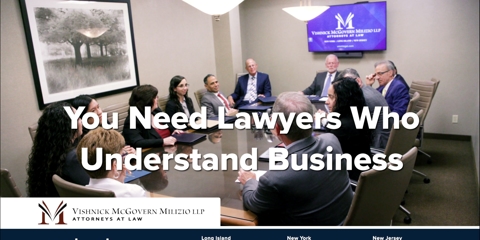Following the US Senate, the House of Representatives passed today the Coronavirus Aid, Relief and Economic Security Act (“CARES Act”), which allocates more than $2 trillion dollars for Coronavirus relief.
Small businesses should be aware of a provision of the Act called the Paycheck Protection Program. This program will make SBA loans available to small businesses, with broad eligibility for businesses impacted by the COVID-19 crisis with 500 or fewer employees, sole proprietors, and independent contractors. The loans will be available through June 30, 2020 from SBA-certified lenders. Key provisions of the program allow for:
- Maximum 10 year duration
- Maximum 4% interest rate
- Non-Recourse
- No collateral
- No personal guarantees
- Government backed loan forgiveness if used during 8 week period following the loan origination date for payroll costs, interest on mortgage obligations, rent and utility payments
- Payment deferred for 6 months to 1 year
- No prepayment penalties
- Loan amounts up to 2.5 times average monthly salaries (annual salary up to $100,000 per employee), not to exceed $10,000,000
- No fees
The Act is aimed at keeping Americans employed following the COVID-19 crisis. Accordingly, the loan forgiveness will be reduced proportionally to the extent of the reduction in the number of full-time employees as compared to the period from February 15, 2019 through June 30, 2019, and for reduction of employee salaries in excess of 25% for employees earning less than $100,000 annual salary compared to the most recent full quarter.
To encourage employers to rehire staff, reductions occurring between February 15, 2020 and 30 days after enactment of the Act will be ignored, if by June 30, 2020 the number of employees and/or pay rates are restored.
In order to beat the rush to apply for these loans, small businesses should be prepared to provide the following:
- Verification of the number of employees on payroll and pay rates for the past year including:
-IRS payroll tax filings;
-State Income Tax, Payroll and Unemployment filings
- Verification of monthly payments for mortgages, rents and utilities
Our attorneys are available to assist with compiling the necessary data, reviewing loan documents, and applying for loan forgiveness under the Act. For any assistance or questions, contact us.
To stay updated with the latest information, sign up for our mailing lists.
Morris Sabbagh is a partner in Vishnick McGovern Milizio’s Tax, Trusts & Estates, and Elder Law Practices. He focuses on assisting families with the preservation of wealth and administration of estates, as well as high-net-worth individuals to prevent the dissipation of assets to taxes and long-term care expenses.
He can be reached at msabbagh@vmmlegal.com and 516.437.4385 x120



